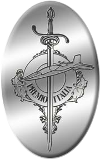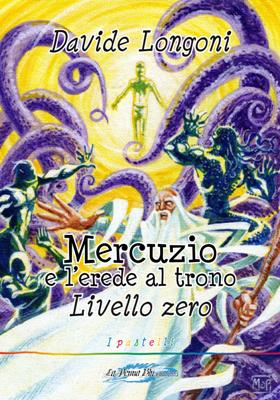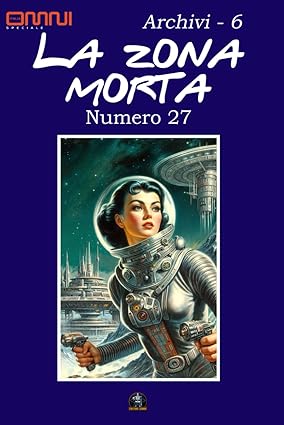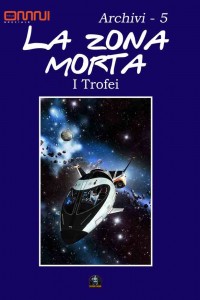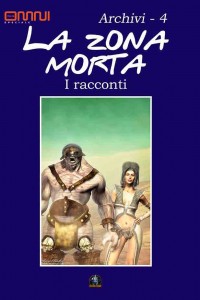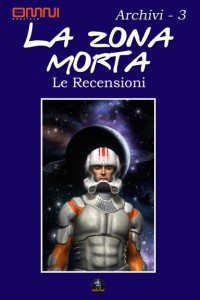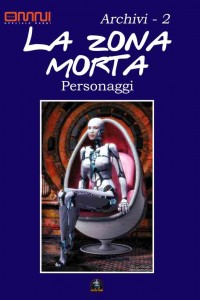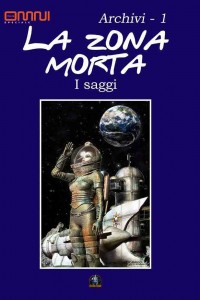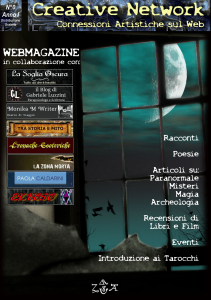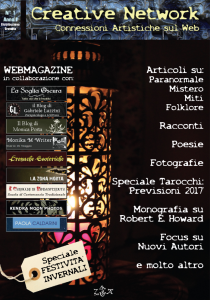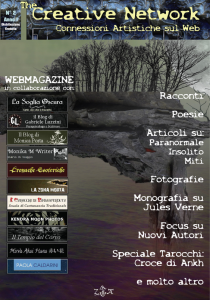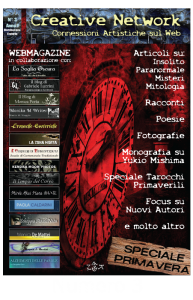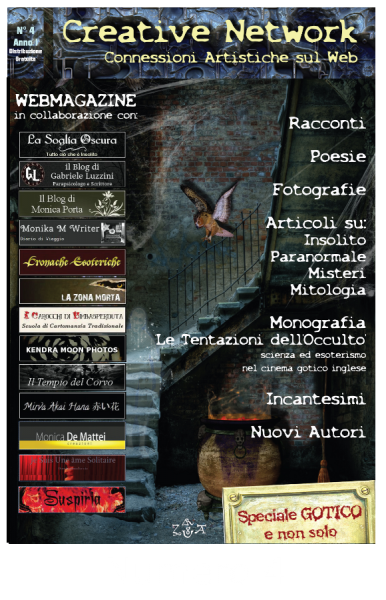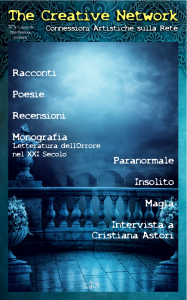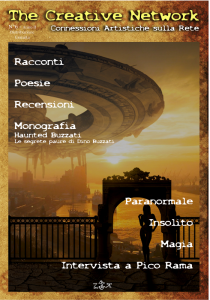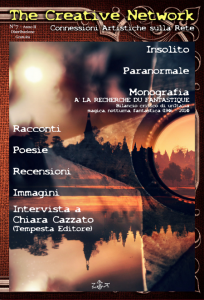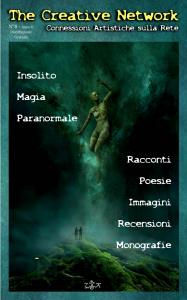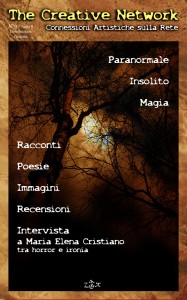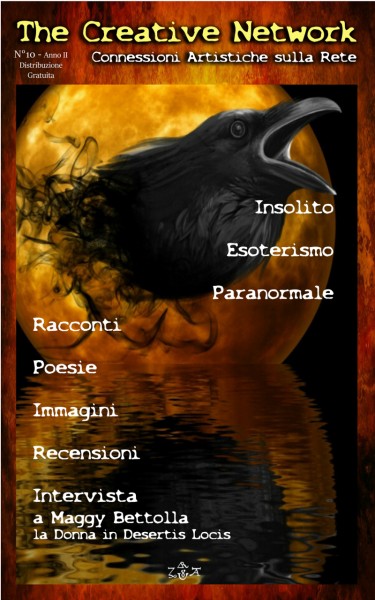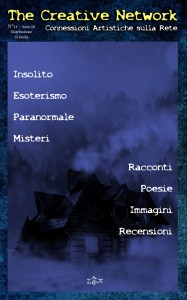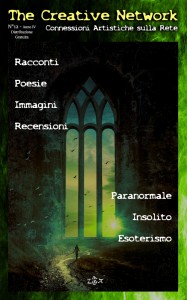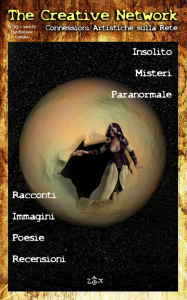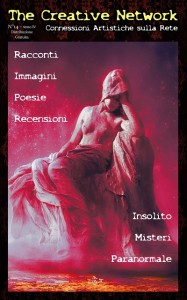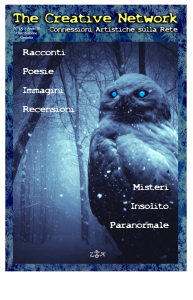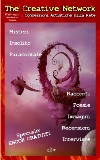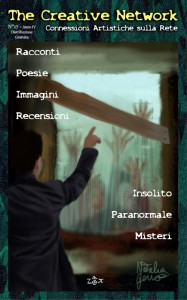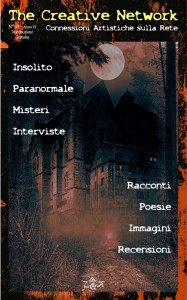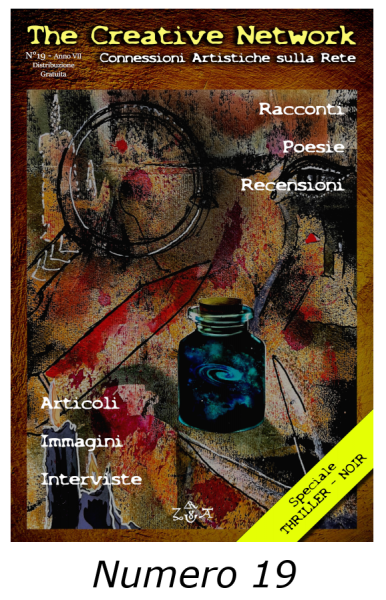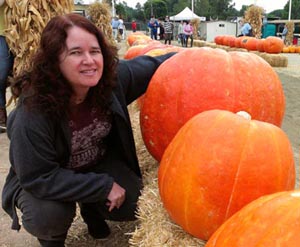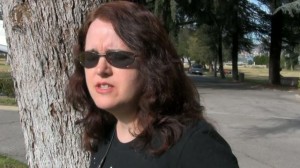 E’ una delle scrittrici di racconti horror più apprezzate oltreoceano, oltre a occuparsi di saggistica e sceneggiature cinematografiche, anche se queste ultime spesso come ghost-writer: stiamo parlando di Lisa Morton, personaggio che nella vita ha fatto un po’ di tutto, come vedremo, ma ha sempre saputo farlo più che bene… soprattutto scrivere, scrivere, scrivere. Abbiamo avuto il piacere di conoscerla per voi, ecco cosa ci ha raccontato.
E’ una delle scrittrici di racconti horror più apprezzate oltreoceano, oltre a occuparsi di saggistica e sceneggiature cinematografiche, anche se queste ultime spesso come ghost-writer: stiamo parlando di Lisa Morton, personaggio che nella vita ha fatto un po’ di tutto, come vedremo, ma ha sempre saputo farlo più che bene… soprattutto scrivere, scrivere, scrivere. Abbiamo avuto il piacere di conoscerla per voi, ecco cosa ci ha raccontato.
PENSO CHE POSSIAMO COMINCIARE DALL’INIZIO: CHI E’ LISA MORTON?
Sono nativa di Los Angeles (sì, siamo qualcosa di raro – la maggior parte delle persone qui è venuta da altrove), e ho lavorato come sceneggiatrice, modellista, fotografa, libraia, coordinatrice del dipartimento di direzione artistica, produttrice associata, e ho anche una presenza come scrittrice di canzoni per un pessimo film. La mia scrittura in prosa è quello di cui sono più orgogliosa però, ed è quello che più mi piace fare.
COME HAI INIZIATO A SCRIVERE?
Ho sempre scritto – ho avuto il mio primo pezzo (una poesia sulla mia tartaruga domestica!) pubblicato quando avevo cinque anni. Tuttavia, non ho davvero provato a perseguire la scrittura come professione fino a quando avevo 21 anni, quando ho iniziato a scrivere sceneggiature.
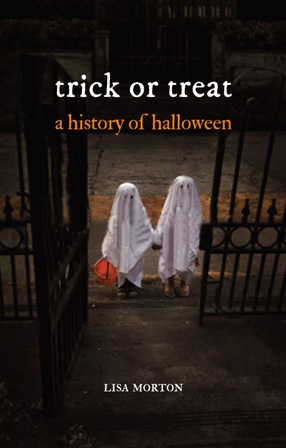 VUOI PARLARCI DEI TUOI LAVORI PRECEDENTI?
VUOI PARLARCI DEI TUOI LAVORI PRECEDENTI?
In realtà sono giunta alla narrativa tardi – ho trascorso i miei vent’anni cercando di vendere sceneggiature, cosa che finalmente ho fatto quando avevo 29 anni. Poi ho lavorato per alcuni anni a Hollywood, ma ho concluso che non mi divertiva molto, i film generalmente non sono andati bene, ed ero imbarazzata nel vedere il mio nome su alcuni di essi. Scrivere racconti mi ha dato la possibilità di raccontare le storie che volevo raccontare senza che nessun altro arrivasse e li riscrivesse, e ho scoperto che ero anche abbastanza brava. Anche se non mi sono mai completamente allontanata dalla sceneggiatura (il denaro è troppo buono, per dirne una), io in verità mi considero una scrittrice di narrativa al momento.
LE TUE OPERE PIU’ FAMOSE SONO PRINCIPALMENTE RACCONTI BREVI PER RIVISTE E ANTOLOGIE. PERCHE’ HAI SCELTO QUESTO TIPO DI SCRITTURA?
Come ho già detto prima, era un modo per me di raccontare storie di cui non mi imbarazzasse avere il mio nome collegato. E ho scoperto che mi è piaciuto molto scrivere racconti; è ancora la mia forma preferita.
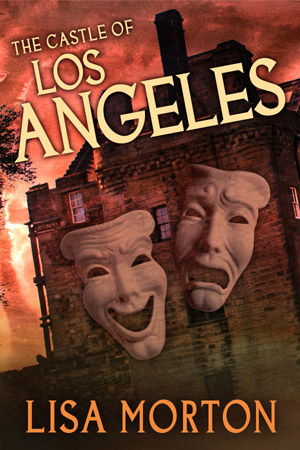 IL TUO UNICO ROMANZO E’, AL MOMENTO, “THE CASTLE OF LOS ANGELES”. VUOI PARLARCENE?
IL TUO UNICO ROMANZO E’, AL MOMENTO, “THE CASTLE OF LOS ANGELES”. VUOI PARLARCENE?
The Castle of Los Angeles era in realtà basato sul mio amore per il romanzo gotico tradizionale. Amo le opere di autori come Ann Radcliffe e Matthew Lewis, e ho pensato che l’etichetta Gotico non era davvero applicata correttamente in un sacco di libri contemporanei. Mi chiedevo se fosse possibile raccontare una vera storia gotica – completa di luoghi comuni come la protagonista femminile, che è rimasta orfana da bambina – in un contesto contemporaneo.
COME HAI INVENTATO LA STORIA?
Oltre al mio interesse per la letteratura gotica, mi piacciono anche la storia locale e l’architettura, quindi ho unito tutti questi elementi e ho aggiunto del mio stesso background il lavorare in teatro.
QUALI SONO STATE LE DIFFICOLTA’ CHE HAI INCONTRATO NELLA CREAZIONE DEI PERSONAGGI E DEI LUOGHI?
Niente di tutto ciò è stato davvero difficoltoso, una volta che ho avuto gli elementi fondamentali della mia storia al loro posto. Ho basato le location su diversi punti di riferimento reali di Los Angeles, tra cui un’enorme comunità di artisti vicino al centro di Los Angeles chiamata The Brewery, e tutto sembrava scriversi da solo abbastanza rapidamente.
CON I TUOI LIBRI HAI VINTO MOLTI PREMI. VUOI DIRCI COME CI SI SENTE QUANDO SI VEDE CHE LE PROPRIE “CREATURE” SONO COSI’ POPOLARI E APPREZZATE?
I premi sono una buona cosa, ma il mio vero obiettivo è raggiungere il maggior numero di lettori possibile. Se i premi aiutano un po’ più di persone a trovare il mio lavoro, è grandioso. Mi piace molto raggiungere le persone che di solito non leggono horror, e non c’è niente di meglio che avere un lettore come quello che ti dice quanto sia stato sorpreso e intrattenuto.
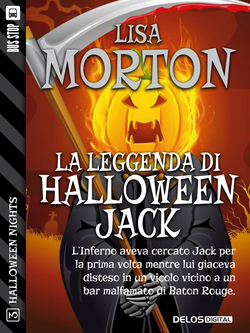 ULTIMAMENTE I TUOI LAVORI SONO STATI TRADOTTI IN ITALIA DA DELOS BOOKS. COSA PENSI DEL NOSTRO PAESE?
ULTIMAMENTE I TUOI LAVORI SONO STATI TRADOTTI IN ITALIA DA DELOS BOOKS. COSA PENSI DEL NOSTRO PAESE?
Sono incredibilmente onorata di avere il mio lavoro tradotto in italiano! Sono una fanatica assoluta delle opere di Mario Bava e Dario Argento (infatti ho ricevuto un nuovo libro su Argento come regalo di Natale questa settimana), e sento una vera e propria affinità con la loro sensibilità.
HAI ANCHE SCRITTO LIBRI DI SAGGISTICA SU VARI TEMI. COSA PUOI DIRCI AL RIGUARDO E COME (E PERCHE’) AVETE SCELTO QUESTI ARGOMENTI?
Il mio primo libro di saggistica era sul regista di Hong Kong Tsui Hark, e dopo aver finito il libro l’editore mi ha chiesto se volevo fare un altro libro con loro. Allora avevano appena lanciato qualcosa chiamata L’Enciclopedia di Natale, così gli ho scritto di nuovo e gli ho detto: “Sai, alcune persone hanno fatto enciclopedie di Natale, ma nessuno ne ha mai fatto una su Halloween”. Per qualche strana ragione, ho pensato che sarebbe stato facile! Ci sono voluti tre anni ed è stato molto difficile, ma sono contenta adesso di averlo fatto. Non mi sono messa a fare l’esperta di Halloween, ma si è rivelato essere molto divertente.
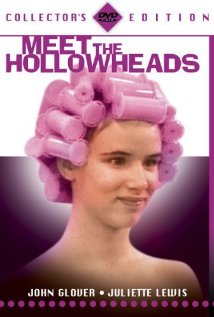 E NON POSSIAMO DIMENTICARE TUA CARRIERA DI SCRITTRICE DI FILM. COSA PUOI DIRCI AL RIGUARDO?
E NON POSSIAMO DIMENTICARE TUA CARRIERA DI SCRITTRICE DI FILM. COSA PUOI DIRCI AL RIGUARDO?
Guardate alcuni dei miei commenti sopra. Ho ancora un sacco di belle e-mail sul mio primo film, Meet The Hollowheads, e quello è stato divertente da fare, ma non sono poi così orgogliosa del resto di loro.
IN QUESTI ANNI HAI SEMPRE AVUTO UNA PREDILEZIONE PER IL FANTASTICO. CHE SIGNIFICATO HA PER TE DI QUESTO ARGOMENTO?
Ho sempre apprezzato il fantasy nella letteratura – da bambina ho amato i film e i libri di mostri – e mi è sempre piaciuto utilizzare storie per esplorare cose che sono al di fuori della nostra abituale esperienza di vita. Ovviamente c’è un posto per la letteratura mainstream, ma personalmente preferirei leggere Franz Kafka che John Updike.
ORA, UNA DOMANDA GENERALE. DOVE TROVI L’ISPIRAZIONE PER TUTTE LE TUE STORIE?
Ovunque. Scherzi a parte, vorrei avere il tempo di scrivere tutte le idee che potrebbero svolazzano nella mia testa ogni giorno! Solo a titolo di esempio: il mio ultimo racconto, “Sexy Pirate Girl” (che sarà nella prossima antologia October Dreams 2), è stato ispirato dalla crescente popolarità di “sexy” costumi di Halloween rivolti alle donne, una tendenza che trovo qualcosa di orribile.
QUALI SONO I TUOI SCRITTORI PREFERITI?
Da bambina sono cresciuta leggendo un sacco di fantascienza – mi sono piaciuti Jules Verne e H.G. Wells e Theodore Sturgeon e Harlan Ellison e Ray Bradbury. Poi un cugino mi ha mandato un cofanetto di H.P. Lovecraft quando ero nella mia adolescenza, e ho iniziato a leggere più orrore. Ora mi piacciono Dennis Etchison e Bentley Little e Gary Braunbeck, e mi piacciono molto anche le storie provenienti da un sacco di nuove scrittrici. E’ così bello vedere il genere horror che continua a progredire ed espandersi.
“L’esorcista” mi ha fatto venire voglia di diventare sceneggiatrice. Altri preferiti sono “Blue Velvet”, “Blade Runner”, “Zombi” (l’originale di Romero), “Two Sisters” di Kim Ji – Woon, “Green Snake” di Tsui Hark e, naturalmente, “Suspiria”.
PARLANDO DI CINEMA, DOBBIAMO ASPETTARCI ALTRI LAVORI (FILM O SERIE TV) DALLE TUE STORIE… O DALLA TUA FANTASIA? O FORSE FUMETTI O VIDEOGIOCHI?
A questo punto, no. Sto ancora facendo qualche lavoro cinematografico, ma è tutto ghostwriting e purtroppo non posso rivelare i titoli.
L’ULTIMA DOMANDA. CHE PROGETTI HAI PER IL FUTURO E QUALI SONO I TUOI SOGNI?
Mi piacerebbe scrivere graphic-novel. Sono una grande fan del lavoro di Alan Moore, cosa che non vuol dire che avrei scritto qualcosa di simile al suo lavoro; lui è in un regno tutto suo! In questo momento sono sotto contratto per vari libri fino al 2017 (tra cui un libro di saggistica sulla storia dei fantasmi e due sequel del mio imminente prossimo romanzo Netherworld), ma ovviamente spero che vadano bene anche alcuni nuovi racconti e altri progetti pure.
ED E’ QUELLO CHE CI AUGURIAMO TUTTI QUANTI: INTANTO RESTEREMO AD ASPETTARTI IN ATTESA DI NUOVE STORIE E DI NUOVE FANTASIE.
E ora, come di solito facciamo, vi lasciamo con il testo originale dell’intervista, augurandoci di non aver commesso troppi errori di traduzione… e se così fosse, perdonateci, abbiamo comunque fatto del nostro meglio.
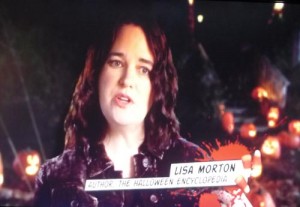 I THINK WE CAN START FROM THE BEGINNING: WHO’S LISA MORTON?
I THINK WE CAN START FROM THE BEGINNING: WHO’S LISA MORTON?
I’m a native of Los Angeles (yes, we’re somewhat rare – most people here came from somewhere else), and I’ve worked as a screenwriter, a modelmaker, a photographer, a bookseller, an art department coordinator, an associate producer, and I even have one songwriting credit on a very bad film. My prose writing is what I remain proudest of, though, and what I most enjoy doing.
HOW DID YOU BEGIN TO WRITE?
I’ve always written – I had my first piece (a poem about my pet turtle!) published when I was five. However, I didn’t really try to pursue writing as a profession until I was 21, when I started writing screenplays.
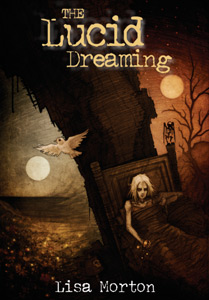 DO YOU WANT TO SPEAK US ABOUT YOUR PREVIOUS WORKS?
DO YOU WANT TO SPEAK US ABOUT YOUR PREVIOUS WORKS?
I actually came to fiction writing late – I spent my twenties trying to sell screenplays, which I finally did when I was 29. Then I worked for a few years in Hollywood, but I found I didn’t enjoy it much; the movies usually didn’t turn out well, and I was embarrassed to see my name on some of them. Writing short stories gave me a chance to tell the stories I wanted to tell without anyone else coming in and rewriting them, and it turned out I was even fairly good at it. Although I’ve never completely moved away from screenwriting (the money is too good, for one thing), I really consider myself to be a fiction writer now.
YOUR MOST FAMOUS WORKS ARE PRINCIPALLY SHORT STORIES FOR MAGAZINES AND ANTHOLOGIES. WHY DID YOU CHOOSE THIS KIND OF WRITING?
As I mentioned above, it was a way for me to tell stories that I wouldn’t be embarrassed to have my name attached to. And I discovered that I really enjoyed writing short stories; it’s still my favorite form.
YOUR ONLY ONE NOVEL IS, AT THE MOMENT, “THE CASTLE OF LOS ANGELES”. DO YOU WANT TO SPEAK US ABOUT IT?
The Castle of Los Angeles was really based on my love of the traditional Gothic novel. I love the works of authors like Ann Radcliffe and Matthew Lewis, and I thought the Gothic label was really not applied correctly to a lot of contemporary books. I wondered if it was possible to tell a truly Gothic story – complete with tropes like the female protagonist who was orphaned as a child – in a contemporary setting.
HOW DID YOU INVENTED THE STORY?
In addition to my interest in Gothic literature, I also enjoy local history and architecture, so I combined all of those elements and added in my own background working in theater.
WHICH WERE THE DIFFICULTIES YOU MET WITH THE CREATION OF THE CHARACTERS AND OF THE LOCATIONS?
None of it was really that difficult, once I had my basic story in place. I based the locations on several real Los Angeles landmarks, including a huge artists’ community near downtown L.A. called The Brewery, and it all seemed to write itself fairly quickly.
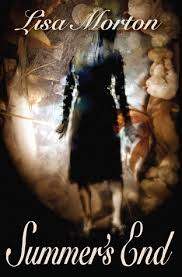 WITH YOUR BOOKS YOU WON MANY AWARDS. DO YOU WANT TO TELL US WHAT DO YOU FEEL WHEN YOU SEE THAT YOUR “CREATURES” ARE SO POPULAR AND APPRECIATED?
WITH YOUR BOOKS YOU WON MANY AWARDS. DO YOU WANT TO TELL US WHAT DO YOU FEEL WHEN YOU SEE THAT YOUR “CREATURES” ARE SO POPULAR AND APPRECIATED?
Awards are nice, but my real goal is to reach as many readers as possible. If awards help a few more people find my work, that’s great. I really love to reach people who don’t usually read horror, and nothing’s better than having a reader like that tell you how surprised and entertained they were.
RECENTLY YOUR WORKS ARE TRANSLATED IN ITALY. WHAT DO YOU THINK ABOUT OUR COUNTRY?
I’m incredibly honored to have my work translated into Italian! I’m an absolute fanatic for the work of Mario Bava and Dario Argento (in fact I got a new Argento book as a Christmas gift this week), and I feel a real kinship with their sensibilities.
YOU ALSO WROTE NON-FICTION BOOKS ON VARIOUS THEMES. WHAT CAN YOU TELL US ABOUT THEM AND HOW (AND WHY) DID YOU CHOOSE THESE ARGUMENTS?
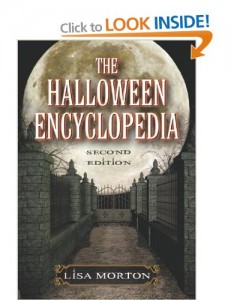 My first non-fiction book was about the Hong Kong filmmaker Tsui Hark, and after I finished that book the publisher asked me if I wanted to do another book with them. At the time they’d just brought out something called The Christmas Encyclopedia, so I wrote them back and said, “You know, a few people have done Christmas encyclopedias, but nobody’s ever done one on Halloween.” For some strange reason, I thought that would be easy! It took three years and was very difficult, but I’m glad now that I did it. I didn’t set out to be a Halloween expert, but it’s turned out to be great fun.
My first non-fiction book was about the Hong Kong filmmaker Tsui Hark, and after I finished that book the publisher asked me if I wanted to do another book with them. At the time they’d just brought out something called The Christmas Encyclopedia, so I wrote them back and said, “You know, a few people have done Christmas encyclopedias, but nobody’s ever done one on Halloween.” For some strange reason, I thought that would be easy! It took three years and was very difficult, but I’m glad now that I did it. I didn’t set out to be a Halloween expert, but it’s turned out to be great fun.
AND WE CAN’T FORGET YOUR MOVIE-WRITER CAREER. WHAT CAN YOU SAY TO US ABOUT IT?
See some of my above comments. I still get a lot of nice e-mails about my first movie, Meet the Hollowheads, and that one was fun to make, but I’m not really all that proud of the rest of them.
IN THESE YEARS YOU ALWAYS HAD A PREDILECTION FOR THE AMAZING. WHAT’S THE MEANING FOR YOU OF THIS TOPIC?
I’ve always enjoyed fantasy in literature – as a child I loved monster movies and books – and I’ve always enjoyed using stories to explore things that are outside of our usual experience of life. Obviously there’s a place for mainstream literature, but personally I’d rather read Franz Kafka than John Updike.
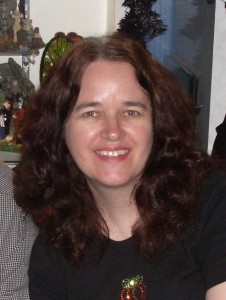 NOW, A GENERAL QUESTION. WHERE DO YOU FIND THE ISPIRATION FOR ALL YOUR STORIES?
NOW, A GENERAL QUESTION. WHERE DO YOU FIND THE ISPIRATION FOR ALL YOUR STORIES?
Everywhere. Seriously, I wish I had time to write all the ideas that might flit through my head on a daily basis! Just by way of example: my last short story, “Sexy Pirate Girl” (it’ll be in the forthcoming anthology October Dreams 2), was inspired by the increasing popularity of “sexy” Halloween costumes aimed at women, a trend I find kind of horrifying.
WHICH ARE YOUR FAVORITE WRITERS?
As a kid I grew up reading a lot of science fiction – I loved Jules Verne and H. G. Wells and Theodore Sturgeon and Harlan Ellison and Ray Bradbury. Then a cousin sent me a boxed set of H. P. Lovecraft when I was in my teens, and I started reading more horror. Now I love Dennis Etchison and Bentley Little and Gary Braunbeck, and I also really enjoy the stories coming from a lot of new female writers. So nice to see the horror genre continuing to progress and expand.
AND YOUR FAVORITE FILMS?
The Exorcist made me want to become a screenwriter. Other favorites include Blue Velvet, Blade Runner, Dawn of the Dead (the Romero original), Kim Ji-woon’s A Tale of Two Sisters, Tsui Hark’s Green Snake, and of course Suspiria.
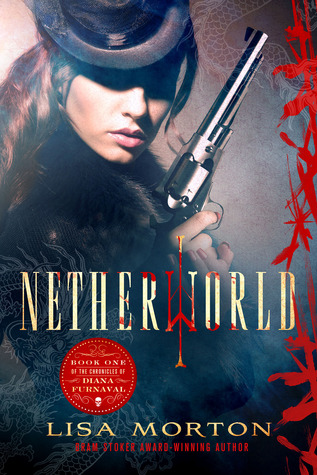 SPEAKING ABOUT CINEMA, DO WE HAVE TO EXPECT ANY OTHER WORKS (FILM OR TV SERIES) FROM YOUR STORIES… OR FROM YOUR FANTASY? OR MAYBE COMICS OR VIDEOGAMES?
SPEAKING ABOUT CINEMA, DO WE HAVE TO EXPECT ANY OTHER WORKS (FILM OR TV SERIES) FROM YOUR STORIES… OR FROM YOUR FANTASY? OR MAYBE COMICS OR VIDEOGAMES?
At this point, no. I am still doing some film work, but it’s all ghostwriting and unfortunately I can’t reveal the titles.
THE LAST REQUEST. WHICH PLANS DO YOU HAVE FOR THE FUTURE AND WHICH ARE YOUR DREAMS?
I’d love to write graphic novels. I’m a big fan of the work of Alan Moore, which is not to say I’d write anything like his work; he’s in a realm of his own! At this point I’m contracted on various books through 2017 (including a non-fiction book on the history of ghosts and two sequels to my forthcoming novel Netherworld), but of course I hope to fit in a few new short stories and other projects as well.
AND IS WHAT WE ALL WISH: MEANWHILE WE WILL STAND BY, WAITING FOR NEW STORIES AND NEW FANTASIES.
